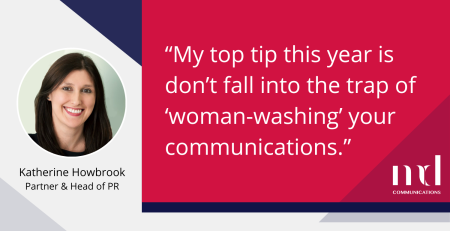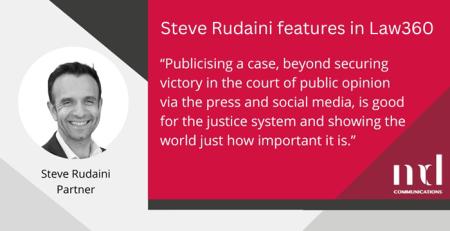The legal profession is often wary of the word ‘campaign’. Historically, it was perceived as the preserve of those at the (often politically-motivated) margins of the profession.
We routinely advise our law firm clients on how to structure and deliver campaigns across a wide spectrum of issues. One bubbling under the surface currently is female genital mutilation (FGM).
Reports emerged in the media last week that militant group Islamic State (Isis) had issued an order that all women and girls based around the city of Mosul in Northern Iraq should undergo FGM. Estimates indicate that this kind of ‘fatwa’ would affect around four million women and children. Although doubts have since been cast on whether or not the report was actually genuine, it was the UN that initially highlighted what it thought to be a threat, indicating just how much FGM has risen on the agendas of the international community in recent years.
It is thought that worldwide more than 130 million girls and women have undergone this horrific procedure and yet it is something that, even in the UK, it has taken far too much time to try and bring under control. Legislation was first introduced in 1985 outlawing FGM but it took 30 years for the first prosecution to happen. FGM involves the removal of either a part, or all, of the female genitalia, and is justified on the basis that it is supposed to suppress female sexual desire and ‘immoral’ behaviour. It is not a procedure that has been commonly carried out in Iraq, according to UN resident and humanitarian coordinator in Iraq Jacqueline Badcock. Although it is widely practiced in Africa and a number of Muslim countries, in Iraq it has been mostly limited to isolated areas, such as Kurdistan, which is why this latest report – if true – is alarming.
Earlier this year the Home Affairs Committee (HAC) of the House of Commons released its report on FGM in which the practice was described as an ‘ongoing national scandal.’ Although the government’s July Girl Summit on female genital mutilation and child and forced marriage was convened by the Prime Minister in order to “empower girls by ending harmful cultural practices” many have highlighted that this really doesn’t go far enough. In the UK there are estimated to be 170,000 living with the scars of FGM and a further 65,000 with the threat of it hanging over their heads.
Dexter Dias QC and Charlotte Proudman, two of the co-authors of the Bar Human Rights report to the Parliamentary Inquiry on FGM, recently suggested two important measures to combat FGM in an article in the New Statesman. The first of these was FGM Protection Orders, which would give a civil court the power to intervene to prevent FGM taking place. The second was the establishment of an Anti-FGM Unit, which would provide help, assistance and expertise for young women at risk. Both of these steps would allow action to be taken to protect vulnerable young women, rather than just talking about it.
There’s such a considerable culture of silence surrounding FGM that defeating it requires involvement from just about anyone with a voice. In the legal community there is so much more that lawyers and communications professionals could be doing to help draw the issue to the attention of the those aren’t aware of how big the problem really is, and to help make it a non-issue in the very near future. Social media is a fantastic tool for this – from blogging on the subject to tweeting or even just retweeting others (follow Twitter accounts such as @FORWARDUK, @DaughtersofEve and @ENDFGM_Amnesty to keep up to date). There’s no doubt that a campaign supported and promoted by the legal community adds considerable weight to the issue – which basically comes down to the defence of a crucial human right. Law Society President Andrew Caplen has recognised this and included the fight against FGM as one of his priorities for this year.
For those of us with any voice at all, it’s about time we spoke up.











